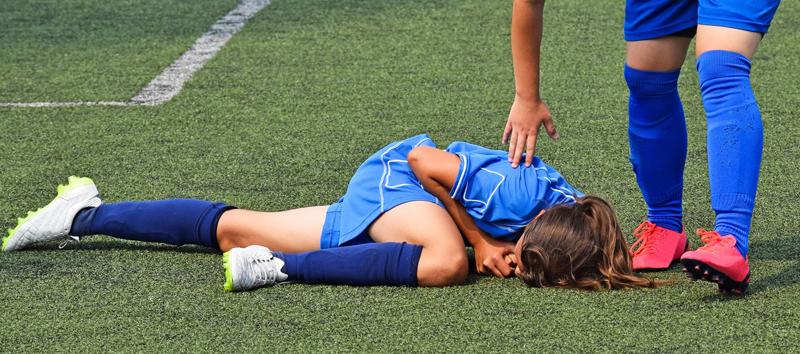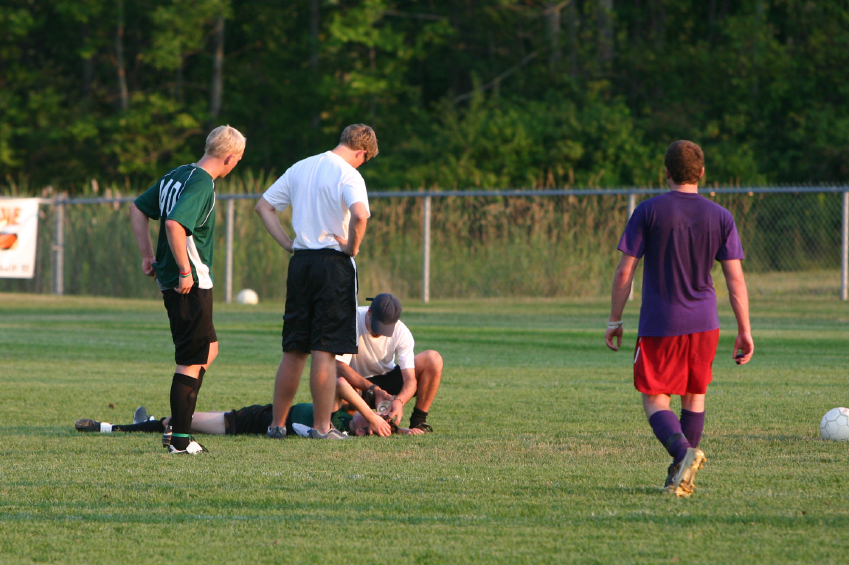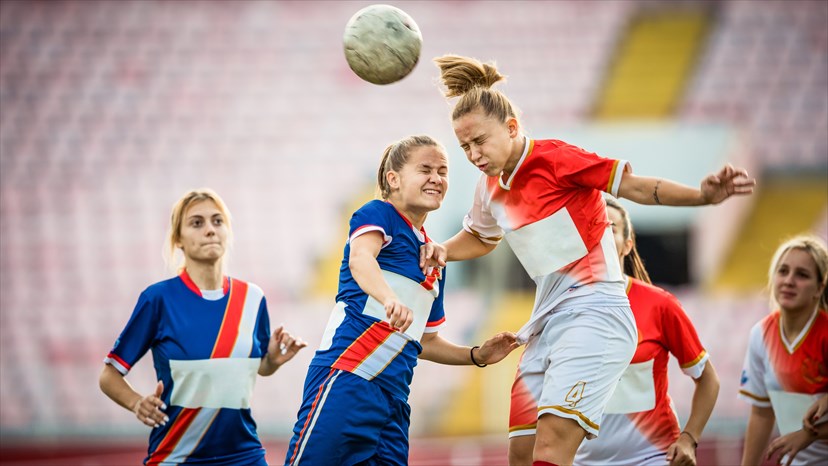Since soccer is a contact sport, players are always at risk to all sorts of injuries. A common injury in the sport is a concussion, a mild injury to the brain. It occurs during impact or sudden movement, where the brain is pushed against the inside of a skull. Depending on the severity of impact or movement, a concussion could lead to outright unconsciousness. Below is everything you can expect from a head injury in soccer:
The Symptoms

Different people will have different reactions to the injury. Loss of consciousness is the most noticeable symptom of a concussion, however players can still experience a concussion without losing consciousness. In some cases, athletes can suffer a concussion and be unaware of the injury, continuing to play in the game and possibly worsening the injury. As long as a noticeable clash of heads or significant body collision has occurred, it is important to do a well-rounded check for a possible concussion.
Some symptoms of a concussion may include:
- Disorientation or confusion, whereby a player does not appear to be thinking clearly.
- Amnesia, where the concussed player forgets what caused the injury.
- Dizziness, drowsiness and sluggishness.
- Being slow to answer familiar questions.
- Experiencing headache, feeling nauseous or vomiting.
- Being unusually sensitive to light or noise.
The Response

Concussions are taken very seriously in soccer. With any head injury during a game, the referee is forced to stop play and call for treatment for the players involved. The players are then examined whether or not they are fit to continue playing.
Main steps when examining a possibly concussed player:
1. Recognize and Remove: Players should be removed from the game if they show any signs of physical pain to their head. Possible red flags to look out for is neck pain, double vision, headache and vomiting. If there are no athletic trainers present, then it is crucial not to move the player until they are breathing freely.
2. Observable Signs: Signs of disorientation, slow labored movements, and no movement should all be checked in the absence of red flags.
3. Checking Symptoms: After checking for signs, the symptoms that were listed above should be examined.
4. Memory Assessment: Questions to be asked include, “What day is today?”, “What venue are we at today?”, “Which half is it now?”, “Who scored last in this game?”, “What team did you play last week/game?”. The inability to answer these correctly could suggest the athlete is suffering from a concussion.
Caring for a Concussed Athlete

It is advised that athletes who have suffered a concussion should not be left alone for the first couple of hours after the incident. Also, they should not drink alcohol, avoid recreational or prescription drugs, not be sent home by themselves and should be in the care of a responsible adult. They should also avoid any sort of physical activity until they are cleared by doctors. With a mild concussion, a doctor’s evaluation can provide a timeline for when the symptoms have cleared, usually lasting between seven and ten days. It is important that the process is not rushed and the child is getting enough rest.



